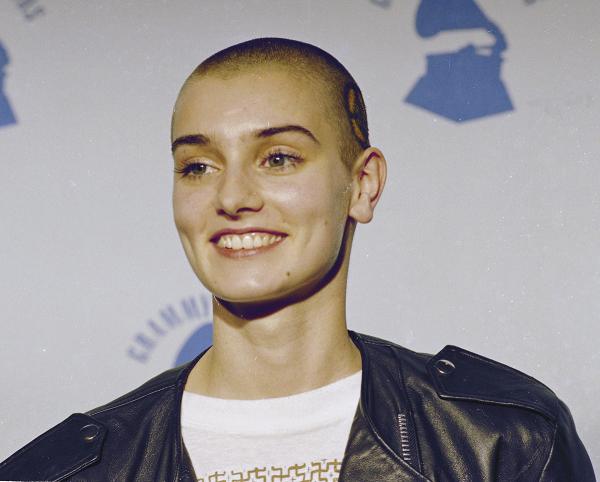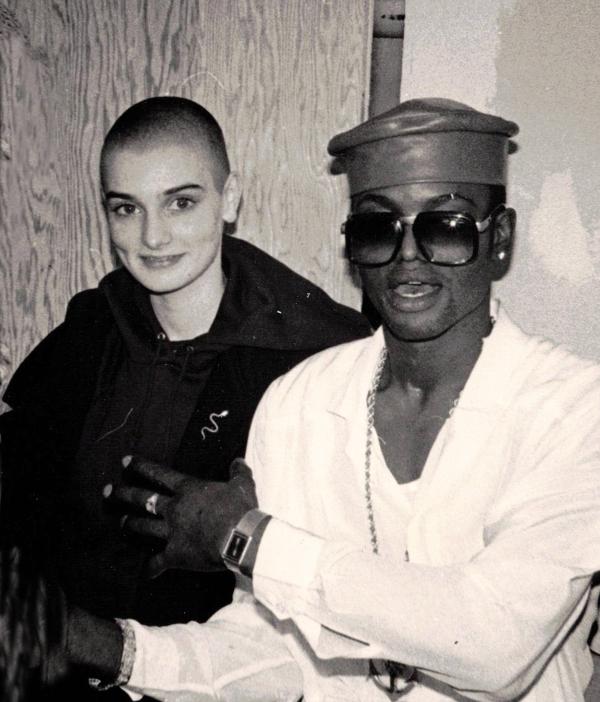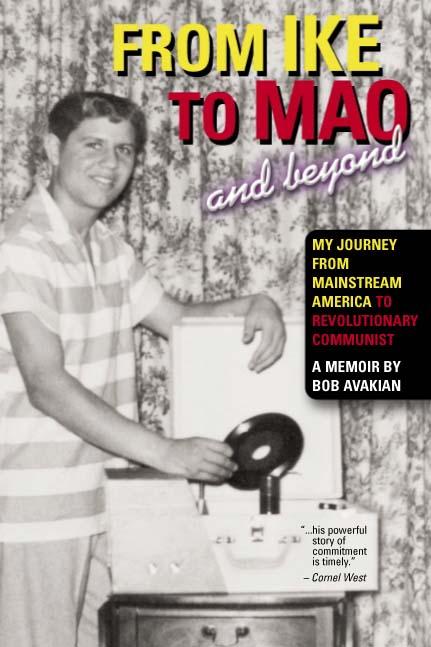
Sinéad O'Connor
When I was 14 years old, Sinéad O'Connor gave shape to my anger. Her raw, unrestrained, disobedient fury stoked a fire and refusal deep in my gut. My friends sharing late night stories of bruises and fear, sexual assault and self-hatred were not something to accept. I didn't have to hang my head and demur at the catcalls, the whistles and innuendo—we could scream and curse and yell. Sinéad was not my only influence, but she gave my anger rhythm. When she sang, “I don't know no shame, I feel no pain,” I don't know what she meant by it, but I know how it made me feel.
Sinéad O'Connor died last week at the too-young-age of 56. Sinéad's determination, her courage and integrity, her unapologetic anger was profound. It is far too much missing today—in the music, culture and society—and this urgently needs to change.
Sinéad knew abuse—her mom beat her mercilessly, at times locking her out of the house and in a cold garden. But even as it was clear she was deeply traumatized, she didn't turn inward... she laid the blame for this on the Catholic Church—for the abuse heaped on her mother, and generations of women and children in Ireland. This was not some personal, individualized seek-shelter-from-the-storm pain. This was a pain that made her stand up and scream. A pain that she viewed in a larger context—flowing from the oppression of Ireland, through British colonialism and Catholic theocratic rule. She saw this oppression in the lives of Black youth in England, the people of Palestine and the oppressed and exploited people in the world.
At 21, Sinéad became a megawatt international pop star. But she never bought in... ever. She didn't allow her edges to be sanded down, or her tone made acceptable.
I was a freshman in high school when the first Gulf War started. I helped organize citywide walkouts in my school, but the war was short lived and despite the U.S.'s bringing down death and destruction on the Iraqi people, the opposition fizzled. What took its place felt like a roaring and demoralizing amount of wave-the-flag patriotism. Even the so-called antiwar voices argued that we had to “support the troops” even if we opposed the war... yellow ribbons were wrapped on trees and lapels and booming flag-soaked parades were held to “welcome back” the American soldiers.
Sinéad stood up against this blind patriotism.

Sinéad O'Connor with Shinehead backstage after a benefit concert for Refuse & Resist, NYC, December 1988. Photo: Special to revcom.us
At a major arena in New Jersey, when she heard the venue had a policy of playing the national anthem before every show, she said that if they played the Star Spangled Banner, she would not perform. This caused an uproar. There were protests against her out front of record stores, radio stations refused to play her music and Frank Sinatra said threateningly, “This must be one stupid broad, I’d kick her ass if she were a guy.”
She linked her refusal to the intense censorship that was happening at the time against hip-hop, “I didn't want to to go onstage after the national anthem of a country that's harassing people when they perform at gigs.... It's the American system I have disrespect for, which imposes censorship on people, which as far as I'm concerned is racism.”
At the time, this was so rare and so refreshing.
After her second album came out, and at the height of her fame, she refused to perform at the Grammys where she was nominated for four awards. She didn't just do this as a personal stand, but in protest of the pursuit of materialism over truth and integrity... And as a challenge to fellow artists:
I am not criticizing the Grammys in particular... I am criticizing the music industry. I am criticizing my peers... artists who are not doing their job. Thousands of children are starving to death every day... children are being beaten up because of problems in society... children are being sexually abused and emotionally abused, people are living in the streets. It's not enough any more to just sit in your chair and say, "Yeah, it's terrible." Musicians are in a position to help heal this sickness, but I'd say 90% of the artists in the music business fail in that responsibility. You must acknowledge that if you are an artist that you are a role model for young people, whether you like it or not. If you don't want to accept that responsibility, you shouldn't be an artist. With power comes responsibility.... How can we sit there hoping to win a Grammy when we have failed in our duty as artists to speak the truth.
Just a year later came her performance on Saturday Night Live, where after singing a cover of Bob Marley's “War,” she tore up the picture of the Pope—a picture she had taken off the wall of her mother's bedroom the day she died, when Sinéad was just 18. I watched this as a teenager stunned and inspired. And while this protest was deeply personal, this too was part of a larger stand she was taking—against sexual abuse in the Catholic Church, the patriarchal oppression of women and girls, the role of the Church in justifying imperialist conquest, “permitting the invasion of countries and the destruction and murder of entire races of people in the name of God and for money...”
She was vilified, attacked, isolated... and unapologetic.
Two weeks later, she was set to perform at a star-studded celebration of Bob Dylan. This was a special occasion—my best friend came over and we ordered it on pay-per-view to watch live. Watch the video when Sinéad comes out—ready to pay tribute to one of her heroes.
Sinéad O'Connor "War" LIVE @ Bob Dylan's 30th Anniversary Concert
She faces down a crowd of thousands, where at first there’s some cheering but soon the loud boos win out. She stands wide-eyed but unbowing. And as the booing grows, so does her stony contempt for those condemning her for standing up against injustice. Kris Kristofferson comes over to encourage her—you couldn't hear it on TV but we found out later that he said to her, “Don't let the bastards get you down.” She answered, “I'm not down.”
Instead of singing the Dylan song she rehearsed for, she tells the band to stop playing and screams "War!" into the microphone. Screams it—defiantly, furiously, unwaveringly.
This was electrifying. Sinéad was not for sale. And her anger and integrity made her stronger.
While she never stopped making music, her career was sidelined—forced to pay for going up against this system and its culture. She also spoke publicly about her struggles with mental illness. And she never stopped seeking—even as this at times led her down blind alleys.
We don't know the circumstances of Sinéad's death but, in the last 25 years, she spoke publicly about several suicidal crises. And she was mourning the death of her 17-year-old son to suicide. What I've found most painful is not just the loss of this powerful voice, but the way this system works to break people—and if it doesn't succeed in extinguishing their fire, they sometimes burn themselves out.
In the society that I am part of fighting to bring into being—based on the new communism that the revolutionary leader Bob Avakian (BA) has developed—the Sinéads of the world would not be sidelined. Their creativity and fury would help shape the future. She would be appreciated without being domesticated, she would be cherished without being condescended to, she would be heard.
In the days since her death, I've been brought back to what BA wrote about the reggae singer Peter Tosh after his death. This is reprinted in his memoir, From Ike to Mao and Beyond: My Journey from Mainstream America to Revolutionary Communist. Like Sinéad, Peter Tosh was intensely religious. After discussing Tosh's life and music, BA says:
We, of course, have differences with him, in particular that he is (or was) religious and we are against religion, ideologically. But he was one of those whom it must definitely be said that his religious convictions led him to stand, firmly, with the oppressed of the world against the oppressors. And he did so with sweep and power.
We, with the most far-seeing and thoroughly liberating ideology there is, can learn from this "fired man": We can rise where he rose, and take it still higher. Sadness to anger; anger to intensified revolutionary energy, fired with a profoundly realistic optimism: that is what should drive us forward and lift our spirit and sights.
FROM IKE TO MAO
and Beyond
By Bob Avakian

